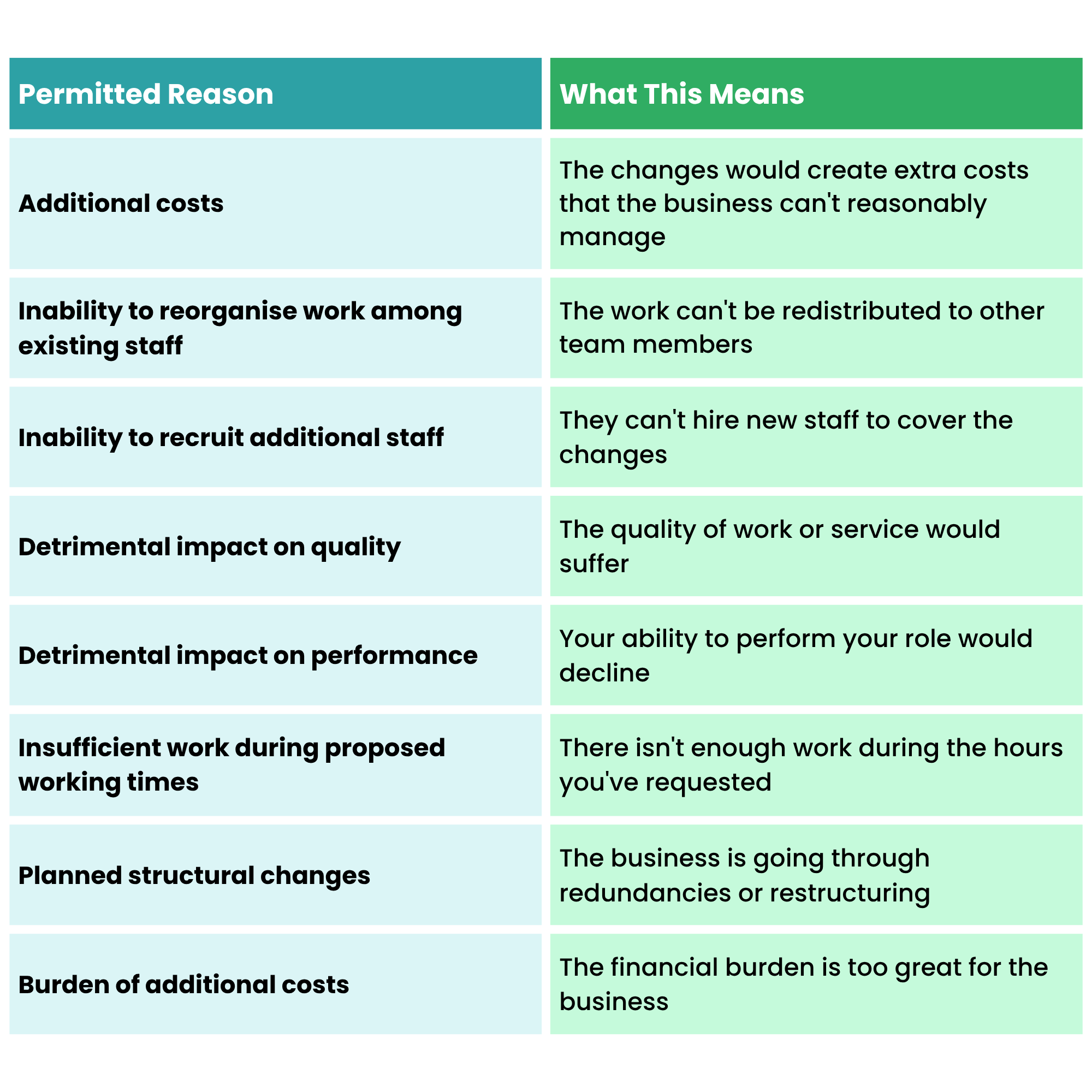
Flexible Working Rights for Carers
How to balance your caring role with employment
What is Flexible Working?
If you're juggling caring responsibilities alongside work, you're not alone. Many people in Cornwall are balancing employment with looking after someone they care about, and it can feel overwhelming at times.
The good news is that since 6 April 2024, all employees in the UK have had the right to request flexible working from their very first day in a job. This means you don't have to wait months before asking for the flexibility you need to care for someone.
Flexible working is an umbrella term for any working arrangement that gives you flexibility over when, where, or how long you work. It's not just about working from home – there are many different types of flexible working that could help you manage your caring responsibilities.
Key Facts About Your Rights:
You can request flexible working from day one of employment
You can make up to two requests in any 12-month period
Your employer must respond within two months
Your employer must discuss your request with you before refusing it
You don't need to prove you're a carer to make a request
You're protected from dismissal or unfair treatment for making a request
It's worth noting that this is a right to request flexible working, not an automatic right to have it granted. However, your employer can only refuse your request for specific business reasons, and they must handle your request in a reasonable manner.
Types of Flexible Working That Could Help You
There are many different ways you could work more flexibly to fit around your caring responsibilities. Here are the main types:
Part-Time Working
Reducing your hours by working fewer days or shorter days each week. This gives you more time for caring responsibilities.
Example: Working three days instead of five, or working mornings only.
Flexible Start/Finish Times
Adjusting when you start and finish work each day to fit around caring needs like school runs or medical appointments.
Example: Starting at 10am instead of 9am to help someone get ready in the morning.
Compressed Hours
Working your full-time hours in fewer days, giving you full days off for caring.
Example: Working 37.5 hours over four days instead of five, giving you every Friday off.
Working from Home
Working from home full-time or some of the time, saving commuting time and allowing you to be nearby if needed.
Example: Working from home three days a week to be available for caring duties.
Flexi-Time
Having flexibility to vary your hours day-to-day, as long as you work set 'core hours' and meet your total hours each week or month.
Example: Working 10am-3pm every day (core hours) but choosing when to work your remaining hours.
Job Share
Sharing a full-time role with another person, each working part-time.
Example: You work Monday-Wednesday, your job share partner works Thursday-Friday.
Annualised Hours
Working a set number of hours over the year, with flexibility about when you work them.
Example: Working more hours during some periods and fewer during others when caring needs are higher.
Term-Time Only
Working only during school term times if you're caring for a child or young person.
Example: Working during term time and having unpaid leave during school holidays.
Real-Life Examples for Carers:
Sarah cares for her elderly mother who has hospital appointments every Thursday. She requested flexible start and finish times, starting at 10:30am so she can help her mum get ready and take her to appointments.
Mark looks after his partner who has a long-term illness. He requested to work from home three days a week so he can be nearby to provide care throughout the day.
Claire is caring for her father with dementia. She requested compressed hours, working four longer days so she has Fridays free to spend time with him and coordinate his care.
David cares for his teenage son with additional needs. He requested part-time hours (three days a week) so he could better manage his caring responsibilities.
Step-by-Step Guide: How to Request Flexible Working
Think About What You Need
Before making a request, take time to think about:
What type of flexible working would best help you manage your caring responsibilities
When you'd like the changes to start
Whether you'd consider alternative arrangements if your first choice isn't possible
How your work could still be completed effectively
You might find it helpful to talk through your options with someone you trust, or get in touch with us at Cornwall Carers Service for support.
2. Check Your Workplace Policy
Look at your employment contract or employee handbook to see if your employer has a flexible working policy. This might tell you:
Who to send your request to
Whether there's a specific form to use
Any additional company-specific information you need to include
If you can't find anything, that's fine – you can still make a request, and the law tells you how to do it.
3. Prepare Your Request
Think about how your request might affect your work and your colleagues, and consider how any potential issues could be addressed. While you're not legally required to do this anymore, it shows you've thought things through and can make your request stronger.
Top Tips for Building Your Case:
Focus on how you'll maintain your work quality and productivity
Suggest solutions to potential challenges
Be prepared to discuss alternatives if needed
Consider offering a trial period to demonstrate it can work
Think about the benefits for your employer (e.g., reduced absence, improved wellbeing, retention of experienced staff)
4. Write Your Request
Your request must be in writing (an email is fine). To make it a statutory request, you must include:
The date of your request
A clear statement that this is a statutory flexible working request
The change you're requesting (be specific)
When you'd like the change to start
Whether you've made any previous flexible working requests and, if so, when
You don't have to:
Explain why you're making the request (though you can if you want to)
Provide evidence that you're a carer
Explain how your employer could manage the impact
However, including your reasons and showing you've thought about the practicalities can strengthen your request.
Example Request Letter:
Subject: Statutory Flexible Working Request
Dear [Manager's Name],
I am writing to make a formal statutory request for flexible working under the Employment Rights Act 1996.
I would like to request [specific change, e.g., "to reduce my working hours from five days to three days per week, working Monday, Tuesday and Wednesday"].
I would like this change to start from [date].
This is my first statutory flexible working request. [Or: I previously made a flexible working request on [date]].
I am requesting this change because I provide care for [brief description if you choose to share]. I believe this arrangement will enable me to continue in my role whilst managing my caring responsibilities effectively.
[Optional: Include how you'll ensure your work is covered, any solutions to potential challenges, or benefits to the employer]
I am happy to discuss this request with you and would welcome the opportunity to explore how this could work in practice. I would also be open to considering a trial period.
Thank you for considering my request.
Yours sincerely,
[Your Name]
5. Submit Your Request
Send your request to your line manager or HR department (check your company policy). Keep a copy for your records.
You can use the GOV.UK template letter if you'd like a starting point.
6. Discuss Your Request
Your employer should arrange a meeting to discuss your request with you. This is your chance to:
Explain your situation in more detail if you want to
Answer any questions they have
Discuss how the arrangement would work in practice
Explore alternatives if your first choice isn't possible
Suggest a trial period if appropriate
Meeting Tips:
You can ask to bring a colleague or trade union representative for support (though your employer doesn't have to agree)
Take notes during the meeting
Be open to discussing alternatives
Stay focused on practical solutions
If you can't attend, let your employer know as soon as possible – they should reschedule
7. Receive the Decision
Your employer must make a decision within two months of receiving your request (unless you both agree to extend this time). They should tell you their decision in writing.
If your request is approved:
The changes should be confirmed in writing within 28 days of approval
Your employment contract will be updated to reflect the new arrangement
The change is usually permanent unless you've agreed a trial period or temporary arrangement
If your request is refused:
Your employer must give you a valid business reason from the permitted list (see below)
They should explain their decision clearly
You have the right to appeal (check your company policy)
You can make another request (you're allowed two per year)
When Can Your Employer Refuse?
Your employer can only refuse your request if they have one of eight permitted business reasons. They must explain which reason applies and why it affects their business.
You are protected by law
When you take Carer's Leave, you have important legal protections:
Right to return: You're entitled to return to the same job after your leave
Protection from dismissal: Being dismissed for taking or requesting Carer's Leave is automatically unfair
Protection from detriment: Your employer cannot treat you unfairly or disadvantage you for taking this leave
Continuation of employment: Your period of continuous employment is unaffected
Important to Know:
Your employer must handle your request in a "reasonable manner". This means they should:
Consider your request carefully and objectively
Discuss it with you before making a decision
Explore whether there are ways to make it work
Respond within the two-month timeframe
If they don't handle your request reasonably, you may be able to take your case to an employment tribunal.
You Are Protected By Law
Making a flexible working request should never put your job at risk. The law protects you from:
Dismissal: You cannot be dismissed for making a flexible working request
Detriment: You cannot be treated unfairly or disadvantaged because you've made a request
Discrimination: If a refusal is discriminatory (for example, refusing requests from women more than men), this could breach equality law
Your Rights and Protections
Special Protections for Carers
As a carer, you may have additional protections under the Equality Act 2010:
If the person you care for has a disability, refusing your request could potentially be discrimination by association
If you need flexible working because of your own disability or health condition, your employer may have a duty to make reasonable adjustments
Refusing requests from women who are carers more often than from men could be indirect sex discrimination
What to Do If Things Go Wrong
If your employer:
Doesn't respond to your request within two months
Refuses to discuss your request with you
Doesn't give you a valid business reason for refusal
Treats you unfairly because of your request
You can:
Use your employer's appeal process if they have one
Raise a formal grievance with your employer
Seek advice from ACAS (Advisory, Conciliation and Arbitration Service)
Make a claim to an employment tribunal (usually within three months of the problem)
Get in touch with us at Cornwall Carers Service for support and guidance
Frequently Asked Questions
Do I have to tell my employer I'm a carer?
No, you don't have to. Your employer cannot ask you to provide evidence of your caring responsibilities. However, many people find it helpful to explain their situation, as it can help their employer understand why the flexibility is important.
Can I make a request during my probation period?
Yes, the right to request flexible working applies from day one, including during probation. However, some employers may prefer to see how you perform in the role first before agreeing to changes.
What if my circumstances change after my request is approved?
If your caring needs change, you can make another request (you're allowed two per year). Remember that once approved, flexible working usually becomes a permanent change to your contract.
Can I suggest a trial period?
Yes, suggesting a trial period (typically 3-6 months) can be a good way to reassure a hesitant employer. It allows both you and your employer to see how the arrangement works in practice.
What if I can only make my request work temporarily?
You can request a temporary flexible working arrangement, but make this clear in your request. For example, you might need flexible hours for six months while arranging longer-term care.
Can my employer insist on a trial period?
While the law doesn't specifically provide for trial periods, many employers use them. You can agree to a trial period and should ensure you agree on review dates and what happens at the end of the trial.
I work shifts – can I still request flexible working?
Yes, flexible working isn't just for office workers. Shift workers can request changes like preferred shift patterns, guaranteed time off on certain days, or advance notice of rotas to plan care.
What if I made a request years ago – does that count?
The 12-month period starts from when you made your most recent request. If you made a request more than 12 months ago, it doesn't count towards your two-request limit.
Can I withdraw my request?
Yes, you can withdraw your request at any time before a decision is made. Do this in writing to your employer.
Other Ways We Can Support You
At Cornwall Carers Service, we understand that balancing work and caring can be challenging. Flexible working is just one piece of the puzzle. We can also help you with:
Carer's Assessments: Understanding what support you're entitled to as a carer
Workplace Support: Advice on talking to your employer about your caring role
Benefits and Financial Support: Checking you're claiming everything you're entitled to
Respite Care: Arranging breaks from caring
Local Services: Connecting you with support in your area
Emotional Support: Someone to talk to who understands
Training and Information: Learning about conditions, care skills, and your rights
Remember, you're entitled to support. Many carers don't realise that help is available – we're here to make sure you get what you need.
Useful Resources
Related Rights for Carers
Don't forget about these other rights that work alongside flexible working:
Carer's Leave: Up to one week of unpaid leave per year to care for or arrange care
Time Off for Dependants: Emergency time off to deal with unexpected problems
Parental Leave: If you care for your child, you may be entitled to unpaid parental leave
We're Here to Help
If you need support making a flexible working request, want to talk through your options, or just need someone who understands what it's like to balance work and caring, get in touch.
Contact us:
Phone: 01736 756655
You're doing an amazing job caring for someone while also working. Don't be afraid to ask for the flexibility you need – you deserve support, and the law is on your side.

The Carers Leave Act
Complete guide to your statutory right to one week of unpaid leave per year. Learn who qualifies, how to request leave, and what protections you have.
Explore More of Your Rights and Support
Register as a Carer with your GP Practice
If you're caring for someone – whether it's a partner, family member, friend, or neighbour – you have the right to be identified as a carer by your GP practice
Flexible Working Rights
Understand your right to request flexible working arrangements from day one. Explore different types of flexibility and how to make a successful request.
Carers Resilience and Enablement Grant
When unexpected situations prevent you from caring, this grant can provide urgent financial support to help you manage.
Time Off For Dependants
Know your rights to take time off for emergencies involving dependants. Learn what qualifies as an emergency and how much time you can take.
Get a Carers Assessment
If you're caring for someone in Cornwall, whether that's a parent, partner, child, friend, or neighbour, you might not think of yourself as a carer. But you may be entitled to support.


